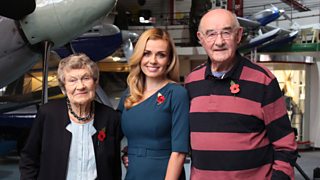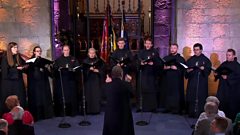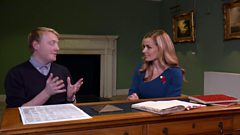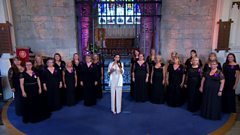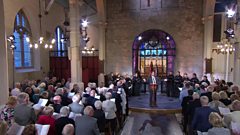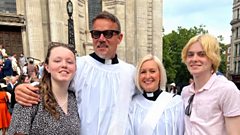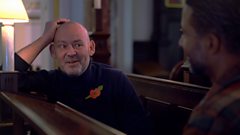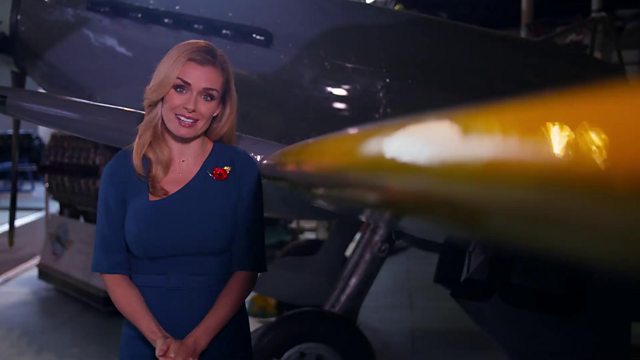
The Unsung Heroes That Built The Spitfire
As the birthplace of the Spitfire, Southampton played a crucial role in aiding victory in World War Two. Katherine meets Don and Margaret who helped to build the iconic aircraft.
The Battle of Britain was a pivotal event in World War Two. For over three months the RAF defended our shores against the Luftwaffe in the summer and autumn of 1940. The heroic actions of the pilots – average age of just 20 – is well documented and the aircraft they flew have become icons of aviation history, none more so than the Supermarine Spitfire. But all the efforts would have been in vain without those who kept those aeroplanes rolling off the production lines.
The Supermarine Spitfire was born in Southampton. A thoroughbred designed by RJ Mitchel, the first prototype took to the air from Eastleigh Aerodrome (later Southampton Airport) in March 1936. The Air Ministry placed an order for 310 aircraft with the Supermarine Factory in Southampton;. When war broke out in 1939 that order became open ended and the factory soon became a prime target.
95 year old Margret White was a teenager working in the accounts department in the factory. She vividly remembers the day the bombers came in 1940:
“You heard all this awful noise and I looked out the window and I literally saw bombs coming down past the window and luckily they missed it on the Tuesday; they came over on the Thursday and the shelter had a direct hit. Unfortunately a lot of the workforce lost their lives but I and one or two went into a deep cellar of a pub, it seemed like for hours and hours. You do offer up a prayer I must admit, you say “please Jesus keep me safe”.
The factory was almost completely destroyed but production of the Spitfire in Southampton continued. Garages, workshops, even laundrettes were requisitioned to produce parts.
Don Black, now 92, was 14 when the car workshop he worked at was turned over to build fuel tanks for the Spitfire.
“There was a great pride in what we were doing. A lot of the Battle of Britain was fought over the skies of Southampton so yes we felt very involved, very close to the whole thing.
I remember being sent on an errand to a tiny workshop that had room only for two cars. I delivered my paperwork to a man in the room upstairs who was making small parts for the Spitfire and placing them in a basket. He said ‘Sorry I can’t stop, I’m the only person in Britain making these parts!’”
By the end of the war 8000 of a total of 20,000 Spitfires had been built in Southampton. Squadron Leader Alan Jones of the Solent Sky Museum has no doubt of the significance of the people who kept production going:
“It’s often asked of me, could we have won the war without Spitfire? The fact of the matter is, if we had not won the battle of Britain because the Spitfire was there, we would have been invaded, no question whatsoever. So yes we wouldn’t have won the war without the Spitfire. We had tremendously gallant and wonderful people flying them but the Spitfire wouldn’t have been there if it wasn’t for these people, the people of Southampton and Castle Bromwich and other places that actually made those aircraft in very, very difficult conditions. And many lost their lives.”
See the whole story on Songs of Praise for Remembrance Sunday, 11th November 2018 at 1.45 on 91�ȱ�1
Duration:
This clip is from
More clips from Remembrance
-
![]()
Hymn: God So Loved the World
Duration: 03:07
-
![]()
Southampton in World War One
Duration: 03:34
-
![]()
The Military Wives Choirs featuring Laura Wright: Brave
Duration: 03:04
-
![]()
Hymn: O God, Our Help In Ages Past
Duration: 02:19
More clips from Songs of Praise
-
![]()
The 'Gladiator' turned Vicar—How I Came to Faith
Duration: 03:11
-
![]()
A 'Road To Damascus' experience—How I Came to Faith
Duration: 03:36
-
![]()
Sea of Faith—How I Came to Faith
Duration: 03:11
-
![]()
Aled plays the saxophone—YolanDa Brown’s Faith and Music
Duration: 02:43
